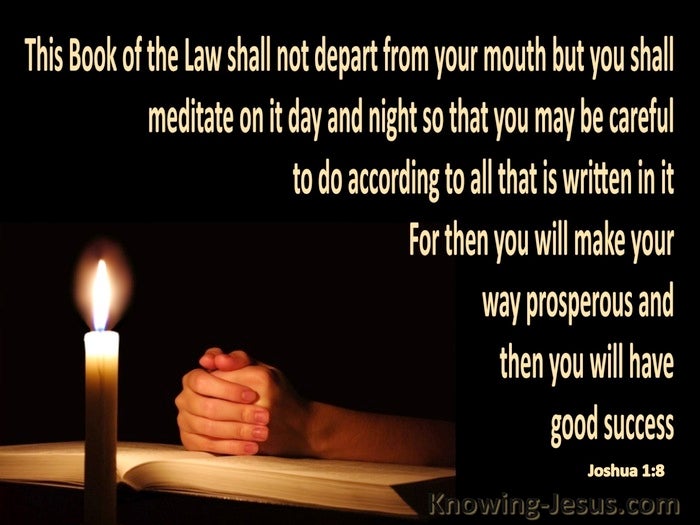In this article, we will explore the fascinating topic of what the Bible has to say about meditation. As you delve into the ancient scriptures, you’ll discover a rich tapestry of teachings and wisdom that sheds light on the practice of meditation. From calming the mind to deepening one’s connection with the divine, the Bible offers insight into the transformative power of meditation in our spiritual journey. Join us on this captivating exploration and unlock the timeless wisdom that awaits within the pages of the Holy Scriptures. Take a moment to pause, breathe, and let the words of the Bible guide you on a path of reflection and inner peace.
What is Meditation?
Meditation is the practice of quieting the mind and focusing one’s attention to achieve a state of inner calm and peace. It involves deep contemplation, reflection, or mental concentration. Meditation can be done in various ways, and its techniques are found in different cultures and religions worldwide.
Definition of Meditation
According to the Merriam-Webster dictionary, meditation is “the act or process of spending time in quiet thought.” In the context of spirituality and personal growth, meditation involves intentionally setting aside time to disconnect from external distractions and turning inward to cultivate a sense of awareness and connection.
Different Types of Meditation
There are numerous forms of meditation, each with its own unique practices and techniques. Some popular types of meditation include mindfulness meditation, loving-kindness meditation, transcendental meditation, and guided meditation. While these practices have gained popularity in recent years, it’s essential to explore the ancient roots of meditation, particularly from a biblical perspective.
Biblical Perspective on Meditation
As people of faith, it’s important to examine how meditation is addressed in the Bible. While the term “meditation” may not be explicitly used, the concept of meditating on God’s Word and seeking a deeper connection with Him is prevalent throughout the scriptures.
Meditation in the Old Testament
In the Old Testament, we see several examples of meditation. In Joshua 1:8, God instructs Joshua to meditate on His law day and night, promising him prosperity and success. This shows that the practice of meditating on God’s Word can lead to a transformed mind and a deeper understanding of His will.
Meditation in the New Testament
In the New Testament, meditation is encouraged as well. In Philippians 4:8, the apostle Paul urges believers to dwell on things that are true, honorable, just, pure, lovely, commendable, excellent, and praiseworthy. This demonstrates the importance of focusing our minds on uplifting and God-centered thoughts, which can positively impact our outlook on life.

Benefits of Biblical Meditation
Engaging in biblical meditation offers numerous benefits for spiritual growth and overall well-being. Here are some of the significant advantages of incorporating meditation into your daily life:
Spiritual Growth
Through meditation, you can develop a closer relationship with God by immersing yourself in His Word and seeking His presence. As you meditate on Scripture and reflect on its meaning, you open yourself up to spiritual insights and allow God to shape your thoughts and beliefs.
Connection with God
Meditation provides an opportunity to connect with God on a deeper level, allowing His peace and wisdom to permeate your heart and mind. By stilling your thoughts and turning your attention toward Him, you create space for His voice to guide you and His presence to envelop you.
Focus and Clarity
Regular meditation helps improve focus and concentration, both in your spiritual pursuits and everyday life. By practicing mindfulness and training your mind to stay present, you cultivate the ability to engage fully in each moment, free from distractions and mental clutter.
Stress Reduction
The peace and tranquility that come from biblical meditation can significantly reduce stress and anxiety. As you surrender your worries and concerns to God and meditate on His faithfulness and promises, you experience a sense of calm and trust that surpasses all understanding.
Emotional Well-being
Meditation allows you to acknowledge and process your emotions in a healthy way. By creating space to reflect on your inner thoughts and feelings, you can gain insight into your emotional well-being and better understand yourself. This self-awareness can lead to emotional healing and growth.
Meditation Techniques in the Bible
The Bible provides us with various techniques and practices for engaging in biblical meditation. Here are a few methods that can deepen your meditation practice:
Meditating on God’s Word
One of the fundamental aspects of biblical meditation is meditating on God’s Word, specifically the Scriptures. This involves selecting a passage or verse and immersing yourself in it, reflecting on its meaning and allowing it to guide your thoughts and actions.
Prayer and Contemplation
In addition to meditating on Scripture, prayer and contemplation are essential components of biblical meditation. Taking time to converse with God, offer Him your thoughts and concerns, and listen for His guidance can enhance your meditation experience and foster a deeper connection with Him.
Silent Meditation
Silent meditation, or the practice of sitting in quiet stillness, can also be a powerful way to commune with God. By emptying your mind of distractions and allowing space for God’s presence, you create an atmosphere of receptivity and openness to divine inspiration.

Examples of Meditation in the Bible
Throughout the Bible, we find examples of individuals who engaged in meditation and experienced profound spiritual growth as a result. Here are a few notable examples:
Meditation of God’s Law by Joshua
In Joshua 1:8, God instructs Joshua to meditate on His law day and night. Joshua’s obedience and commitment to meditating on God’s Word allowed him to lead the Israelites effectively and remain steadfast in his faith.
David’s Meditation on God’s Faithfulness
In the Psalms, King David often reflects on God’s faithfulness and meditates on His love and mercy. These heartfelt meditations serve as a testament to David’s deep connection with God and his reliance on Him in times of joy and sorrow.
The Psalms as a Form of Meditation
The entire book of Psalms can be seen as a form of meditation. Written by various authors, these poetic expressions of praise, lament, and trust in God provide valuable insights into the practice of meditation and how it can shape our relationship with Him.
Misconceptions about Biblical Meditation
Despite the rich history of meditation in the Bible, there are often misconceptions about its practice. Understanding these misconceptions can help us approach biblical meditation with clarity and confidence.
Meditation vs. Eastern Mysticism
One common misconception is that biblical meditation is synonymous with Eastern mysticism or New Age practices. However, while mindfulness and certain meditation techniques may have similarities across cultures, the goal and focus of biblical meditation are distinct. Biblical meditation seeks to align our thoughts and hearts with God and His Word, rather than seeking enlightenment or self-realization.
Meditation vs. Emptying the Mind
Another misconception is that meditation requires emptying the mind of all thoughts and entering a state of complete stillness. While silence and stillness are important aspects of meditation, biblical meditation involves filling the mind with God’s truth and allowing His Word to shape our thoughts and perspectives. It is a process of active engagement, rather than passive emptiness.

Instructions for Biblical Meditation
To engage in meaningful and effective biblical meditation, consider the following instructions and practical tips:
Finding a Quiet Place
Choose a quiet and comfortable location where you can minimize distractions and focus your attention on God. This can be a dedicated prayer room, a serene corner in your home, or even a peaceful outdoor space. Creating this quiet haven will help foster a contemplative atmosphere.
Focusing on Scripture
Select a specific passage or verse from the Bible to meditate on. Read it slowly and repeatedly, allowing its words to sink into your heart and mind. Reflect on the meaning, ask God for insight, and allow His Spirit to illuminate the truth within the passage.
Practical Tips for Meditation
Here are some practical tips to enhance your meditation experience:
- Set aside dedicated time each day for meditation.
- Use calming music or ambient sounds to create a peaceful environment.
- Incorporate deep breathing exercises to promote relaxation and focus.
- Journal your thoughts and reflections after each meditation session.
- Seek guidance from mentors, pastors, or spiritual leaders who have experience in biblical meditation.
The Role of Meditation in Christian Life
Biblical meditation plays a significant role in the life of a Christian, cultivating spiritual growth, intimacy with God, and a transformed mind. Here are a few insights into its role:
Intentionality and Regularity
To fully experience the benefits of biblical meditation, it is essential to approach it with intentionality and regularity. Consistently setting aside time to meditate on God’s Word and connect with Him allows for a more profound and transformative experience.
Balancing Meditation and Action
While biblical meditation is a vital practice, it is crucial to strike a balance between meditation and action. Meditation should not be seen as a substitute for taking practical steps of obedience and applying God’s truth in daily life. Rather, it serves as a foundation for aligning our thoughts, emotions, and actions with God’s will.

Practical Applications of Biblical Meditation
To bring the practice of biblical meditation into your daily life, consider the following practical applications:
Developing a Personal Meditation Practice
Create a personal meditation routine that works for you. Set aside a specific time each day to engage in meditation. Start with a few minutes and gradually increase the duration as you become more comfortable. Remember, consistency is key in establishing a beneficial meditation practice.
Meditation in Group Settings
Engaging in meditation with others can provide a supportive environment and foster communal growth. Consider participating in a meditation group or forming one with like-minded individuals. Through shared experiences and discussions, you can deepen your understanding of God’s Word and encourage one another on the spiritual journey.
Incorporating Meditation into Daily Life
Extend the practice of biblical meditation beyond dedicated meditation sessions. Throughout the day, intentionally bring to mind God’s Word, reflect on its meaning, and seek His wisdom in various situations. By constantly tuning your heart and mind to God, you will develop a habit of living in constant communion with Him.
Conclusion
Biblical meditation offers a rich and transformative way to connect with God, cultivate spiritual growth, and find inner peace. By engaging in intentional reflection on God’s Word, practicing silence and stillness, and seeking His presence, we can experience the manifold benefits of meditation in our lives. As you embark on your meditation journey, may you be encouraged to dive deeper into the treasures of God’s Word and discover the transformative power of biblical meditation.

